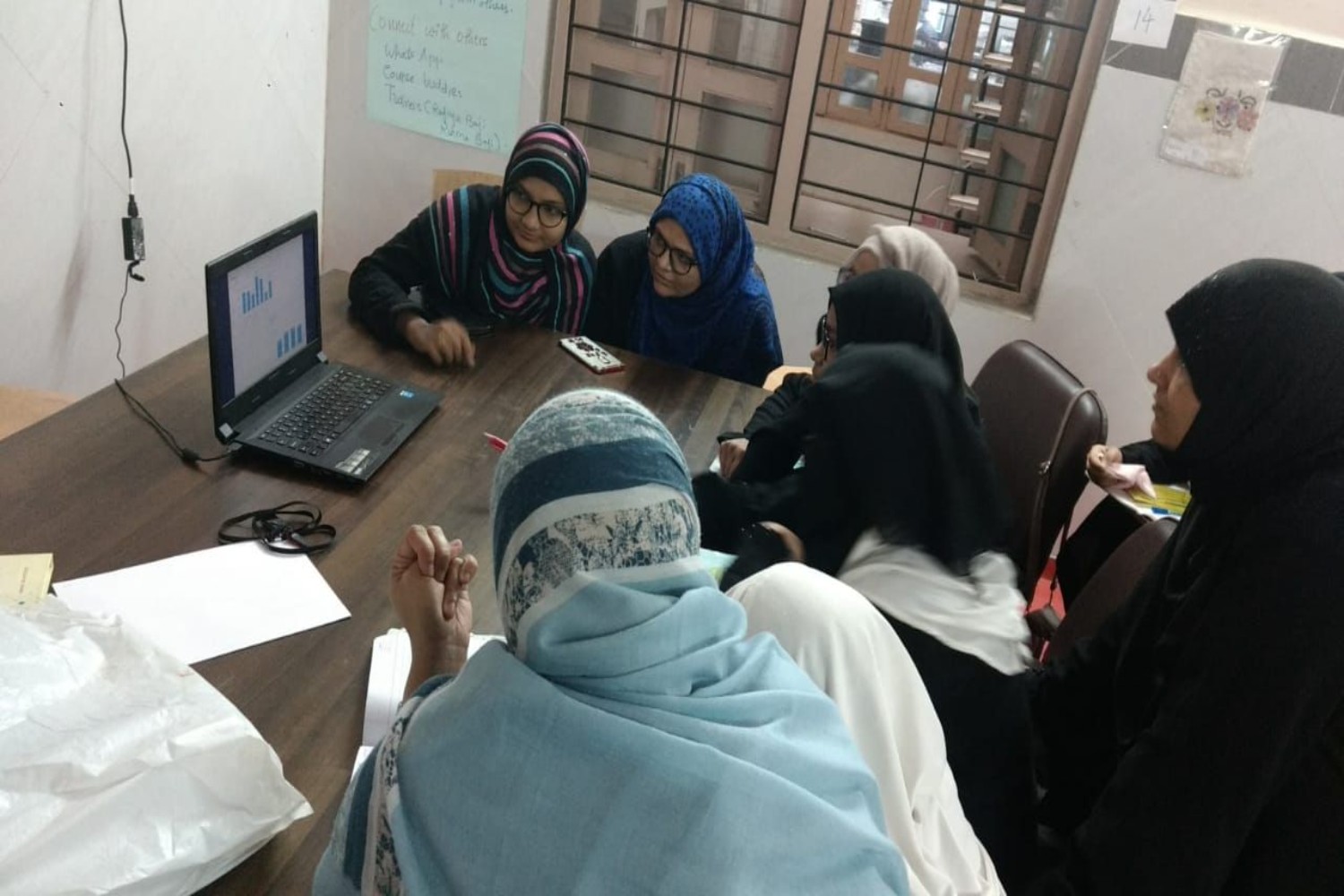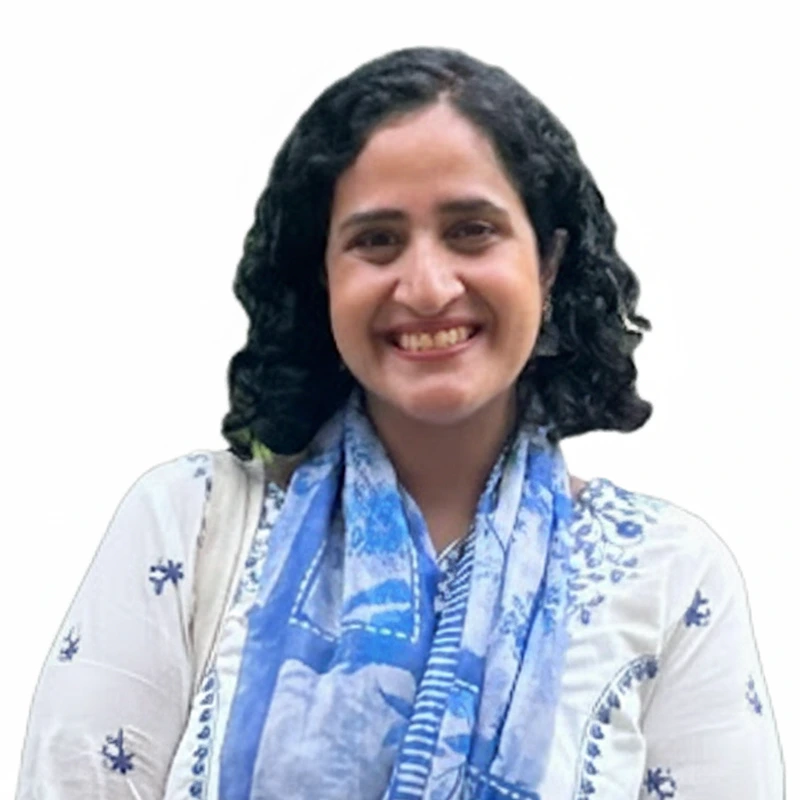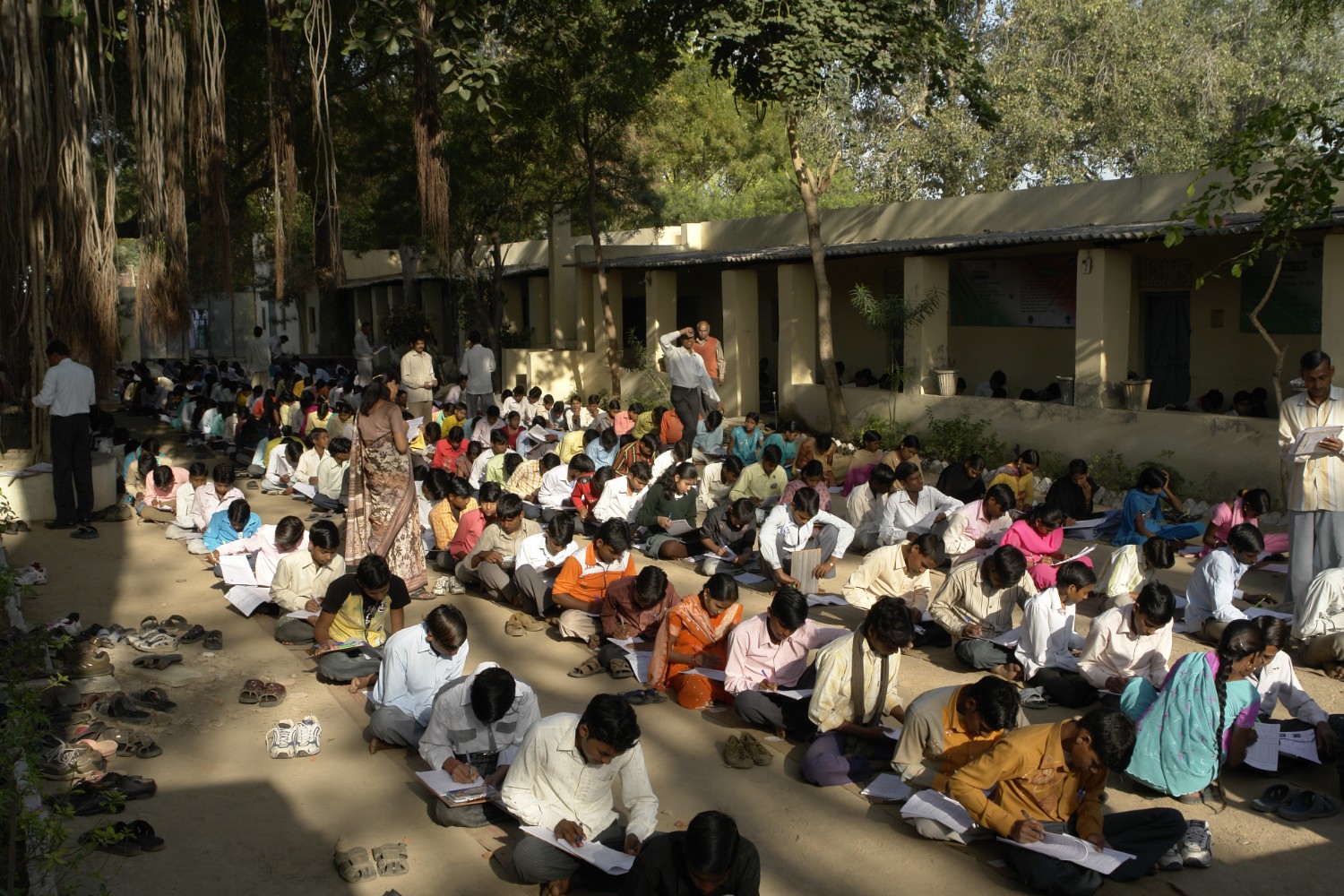Reimagining assessments
The “Ground Zero” piece brings together the work of three CSOs working across the country. It discusses why inclusion, of various aspects of learning and of children with disabilities, is such an important issue to address.

Assessments play a vital role within our education system, serving as a cornerstone for measuring the attainment of educational objectives. They enable us to determine the effectiveness of curricula, teaching materials, and pedagogical methods in achieving the intended goals. In this ground zero piece, we will delve into the perspectives of three organizations who share their insights on how they perceive assessments and incorporate them into their practice to cater to the unique contexts and needs of the children they engage with.
Apni Shala Foundation
Apni Shala Foundation (ASF) works with students from municipal schools and other diverse institutions to nurture emotional, interpersonal and thinking skills. Through their interventions, the team envisions opportunities for children to become reflective and inquiring individuals who are confident, able to build healthy relationships, and become great problem-solvers. The ASF team is resolute in their understanding that assessments’ purpose is to understand the evolution of socialemotional learning (SEL) skills, rather than concentrating on assigning grades to students. Prior to the pandemic, facilitators conducted observational assessments for students in grades 1 to 7. Utilizing a straightforward template, these facilitators documented SEL competencies guided by behavioral indicators that they observed during a classroom session. For instance, these indicators would include students asking questions to clarify when they did not understand a concept, a student offering to help or collaborate with her peers, or a student helping to resolve a conflict.
During the pandemic, since physical interaction was not possible, the team veered toward a self-assessment tool. Students’ perceptions of themselves were mapped to five SEL competencies from the CASEL framework – self-awareness, self-management, social awareness, relationship skills, and responsible decision-making. For grades 8-10, ASF administered Rosenberg’s self-esteem assessment.
As a consequence of the COVID-19 pandemic, over a span of two years, they administered a self-reported evaluation among students. Students were tasked with rating their frequency of exhibiting SEL competencies on a scale of 1 to 5. For instance, when presented with statements like, “I am capable of independently finishing tasks” or “I seek assistance when I encounter difficulties,” students selected options such as ‘rarely, a few times, sometimes, many times, and most of the time.’
The ASF team adheres to a collective reporting approach. They abstain from conducting assessments that furnish individual student data to school partners. Instead, facilitators employ individual student data to extrapolate insights about the overall school or specific grade-level trends.
Over the past year and a half, the team embarked on a process of reevaluating their comprehension of SEL. Saesha, an ASF team member, explained, “As the frameworks we adopted primarily originated in Western contexts and predominantly emphasized behavioral modification, we took the initiative to create our own toolkit. We embarked on a journey that began with defining what SEL signifies to us, leading us to determine the most efficient methods of measurement.”
The ASF team has initiated the pilot phase of an innovative assessment toolkit. Amrita from ASF, shares, “Recognizing the limitations of depending on a singular tool to gauge transformations solely from the perspectives of students or facilitators, we identified the necessity for a more comprehensive approach. This led to the development of a holistic toolkit. This toolkit encompasses multiple dimensions, including a self-reporting survey, a situational judgment test, meticulous observations documented by ASF’s facilitators, and engaging classroom dialogues that will help us understand tangible expressions of SEL within the learning environment.”

The ASF team acknowledges that apprehensions linked to assessments often stems from a student’s fear of judgment. Amrita recollects, “A particularly touching instance was when a student paused during the assessment and confided in the ASF facilitator, admitting that they were unsure of how to answer a question. This remarkable incident reflects how children’s engagement with assessments facilitated by ASF isn’t primarily influenced by concerns about how teachers or caregivers might perceive their performance.”
In the deployment of their assessment tools, the ASF team consistently emphasizes their purpose: aiding students in comprehending their own learning on SEL competencies and reflecting on their feelings about it. For instance, if the children reflect on their feelings and actions such as when they say they are aware of the emotions that they go through or might say they have friends in classroom they deeply care about.
Another important aspect to consider is how educators or assessors interpret the data gleaned from assessments. As long as the data analysis aims to inform subsequent actions and decisions, it serves its purpose. However, should the data be employed to categorize students as high or low achievers, a reevaluation of the perception of assessments becomes imperative.
The ASF team comes together periodically to understand how the movement on SEL indicators and academics could guide the next set of interventions. Saesha from the ASF team adds that there could be children in a particular grade showing improvement in mathematics and helping their peers with concepts in the subject. Similarly, for other subjects, the team tries to draw comparable insights.
The team has admitted that they are yet to discover a method to evaluate the influence of their initiatives on stakeholders beyond the students within the educational ecosystem.
Ashray Akruti
Ashray Akruti (AA) operates special schools that cater to the education of over 500 children with hearing impairment across four locations in Telangana. These schools offer free education and rehabilitation services for hearing-impaired children, starting from prenursery up to grade 10. One of the primary challenges faced by these children is the lack of speech and language skills, which significantly impacts their development and growth. To address this, the schools focus on equipping the students with the skills necessary to thrive in the mainstream world and provide academic training to prepare them for qualifying examinations.

The schools follow the syllabus and curriculum set by the Telangana State Board, but also adapt these to meet their students’ specific needs. To ensure personalized attention, Ashray Akruti maintains a low teacher-student ratio, allowing each child to receive individualized support.
Recognizing that assessments for children with disabilities should differ from those for typical children due to varying learning abilities, the AA team tailors classroom teaching and implements flexible assessments. Understanding the impact of Ground Zero Ground Zero hearing impairment on each child’s learning is essential in this regard.
Surekha and Sasikala, educators at one of the Ashray Akruti schools, emphasized, “The Telangana state government offers concessions for children with special needs, including those with hearing impairments. These concessions involve reducing the pass marks from 35 to 20 across all subjects from classes 6 to 10. Additionally, children with hearing impairments are required to study one language out of three, while focusing on three other subjects: mathematics, science, and social sciences.”
The instructors at AA adopt a holistic approach towards assessments, understanding that they are not the sole determinant of a student’s abilities. When faced with students who might struggle with assessments, the teachers streamline the questions to encompass the core concepts of a topic. Surekha explained, “To illustrate, if there are 10 essay questions and a student is unable to tackle all of them, we provide them with only three to five questions that are fundamental and pivotal for their comprehension. For instance, when covering a lesson about force, the assessment would involve explaining the concept of force and identifying various types of forces.”
When they admit a new child to their schools, the AA team also conducts assessments to determine the grade in which they should be enrolled. Sasikala explains, “In a mainstream school, children are enrolled according to age. At AA, the team conducts a comprehensive audiological evaluation, and an assessment of reading, writing and mathematical skills. Based on the findings, they see if the child can be admitted to a particular grade or needs a bridge course to be enrolled at an age-appropriate grade. For instance, an 11 years old child Karthika approached us in September 2022. In our first assessment, she was able to comprehend only vowel sounds, say very basic words like mom, dad, etc., read and write alphabets and only identify numbers till 10. We used that assessment to set learning goals under a bridge program that focused on increasing her understanding of all skills. We again conducted an assessment, and based on the findings it was found that she could be enrolled in grade 2.” The team at Ashray Akruti strongly believes that assessments should not induce fear in children. Their purpose is to track learning outcomes and establish realistic learning goals to support each child’s development effectively. By fostering a positive learning environment and offering tailored support, the schools strive to empower hearing-impaired children and help them thrive in their educational journey.
Samait Shala
Samait Shala is an NGO, based in Ahmedabad, which collaborates with affordable private schools to foster inclusive classroom environments. Their mission aligns with the inclusive education initiatives set forth by NCERT and Samagra Shiksha Abhiyan.
They achieve this by empowering school teachers and leaders within mainstream educational institutions, enabling them to facilitate the growth and development of children with disabilities in parallel with their peers. The Samait Shala team believes that written and oral assessments should help us understand the strengths and gaps in a child’s ability to understand a concept.
In their efforts to guide teachers in assessing children’s learning levels, the Samait Shala team initiates the process by revisiting the predetermined learning objectives for each chapter. Subsequently, they craft assessments that align with these objectives. Recognizing the challenges teachers face in translating assessment observations into pedagogical adjustments or reflections on learning objectives, the Samait Shala team remains cognizant of this dilemma.
The conventional structure, essence and timing of assessments are seldom questioned, especially concerning children with learning disabilities. The Samait Shala team acknowledges that fostering inclusive classrooms mandates a departure from rigid assessment norms that disregard the diverse learning abilities and environments of children. The team asserts that flexible assessment approaches should accommodate alternative modes of expression, such as oral responses or individualized means of communication.
When designing numeracy and literacy assessments tailored for children exhibiting significant learning disabilities, the focus is on avoiding overwhelming tasks. The Samait Shala team advises educators to initiate numeracy assessments with activities such as identifying varying sizes of shapes or recognizing numbers. They recommend utilizing manipulatives and visual aids to enhance comprehension of assessment questions.
For literacy assessments, teachers are encouraged to commence with picture books and word-building exercises, gradually easing students into the assessment process. Facilitators actively cultivate learning environments that enable children with disabilities in understanding questions and formulating responses.
The team also endeavors to steer clear of assessments that solely revolve around the child. Kushal Dattani, co-founder of Samait Shala, explains, “We maintain observational records for certain students whom we believe might require additional assistance. Our facilitators maintain these records, which encompass observations such as the child’s engagement in active communication and displayed interests.”
Kushal elaborates, “It’s hardly surprising that paper-based assessments used by teachers include questions sourced from the prescribed NCERT books. To illustrate, if a chapter concludes with 6 questions, approximately 3 to 4 questions are directly derived from these sources. The focus is not solely on evaluating children’s learning levels. Our emphasis lies in integrating formative assessments that entail ongoing evaluation and adapting teaching methodologies to suit the students’ needs.”
The Samait Shala team is also cautious not to enforce reforms too aggressively and potentially alienate school support. Kushal further explained that they proceed with prudence. They acknowledge that the assessment system can burden teachers. However, their goal is to guide teachers toward comprehending the advantages of formative assessments. Over time, the team aspires for teachers to gradually embrace its value and develop confidence in its integration within their teaching practices.
In conclusion
Assessments may evaluate learning, yet they do not guarantee it. True learning necessitates more than assessments; it relies on the presence of nurturing learning environments within schools, coupled with dedicated teachers who employ assessments as a means to consistently adapt their pedagogical methods and resources.



No approved comments yet. Be the first to comment!